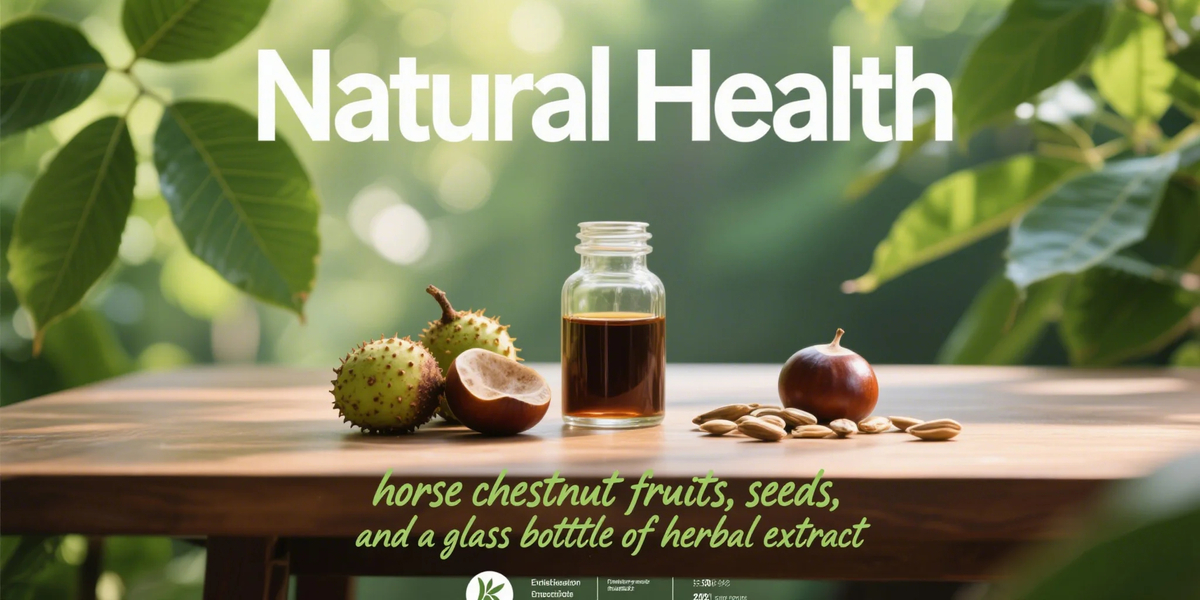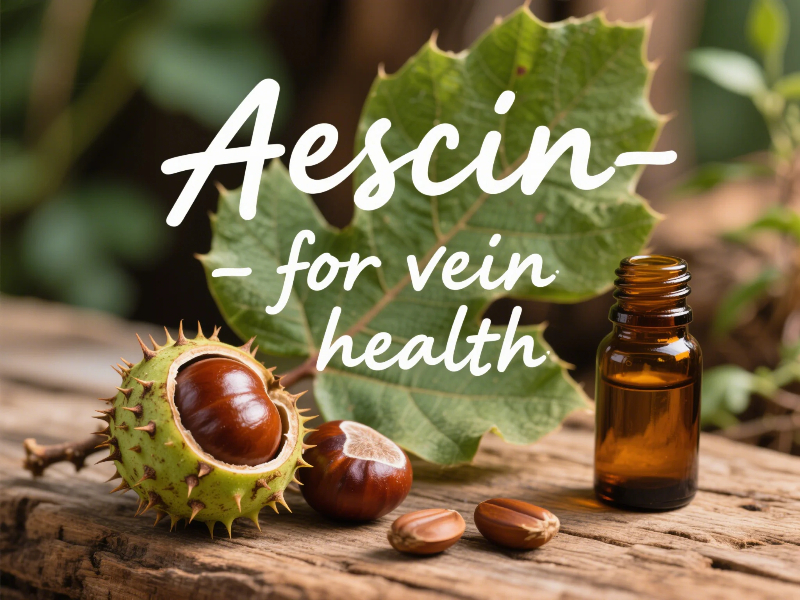Horse Chestnut Benefits for Vein Health and Inflammation: Properties, Uses, and Healing Potential

Horse chestnut benefits are widely recognized in natural medicine, particularly for treating vein-related conditions and chronic inflammation. Native to the Balkans but popular across the USA, UK, Canada, and Europe, horse chestnut (Aesculus hippocastanum) contains active compounds such as aescin, which support circulatory health, reduce leg swelling, and relieve symptoms of chronic venous insufficiency (CVI). This article explores the full spectrum of its medicinal applications.
What Are the Medicinal Properties of Horse Chestnut?
Horse chestnut contains anti-inflammatory and venotonic properties, making it effective for managing vascular disorders and inflammation-related conditions.
Aescin – The Key Compound for Circulation
Aescin improves vein elasticity, boosts blood flow, and prevents fluid leakage into tissues. It is the core compound behind many of horse chestnut’s therapeutic effects.
Antioxidant Action and Capillary Protection
Horse chestnut extract provides antioxidant protection, strengthens capillaries, and reduces oxidative stress in blood vessels.
Top Horse Chestnut Benefits for Health
1. Supports Vein Health and Reduces Varicose Veins
Horse chestnut benefits vein tone and blood circulation, which reduces symptoms of varicose veins such as swelling, itching, and heaviness.
2. Treats Chronic Venous Insufficiency (CVI)
Used in Europe as a primary herbal remedy for CVI, horse chestnut alleviates pain and swelling caused by poor blood return.
3. Relieves Hemorrhoids Naturally
Thanks to its anti-inflammatory properties, horse chestnut can help shrink swollen veins around the rectum.
4. Eases Leg Cramps and Fatigue
Many report relief from leg fatigue, cramps, and nighttime discomfort after regular use of horse chestnut extract.
5. Reduces Swelling and Inflammation
Aescin limits inflammation by reducing fluid retention and improving lymphatic drainage.
How to Use Horse Chestnut for Healing
Forms Available
Horse chestnut can be used as oral supplements, topical creams, tinctures, or teas. Capsules and extracts are common in clinical use.
Recommended Dosage and Safety Tips
Always choose standardized extracts with 16–20% aescin. Avoid raw seeds due to toxicity. Consult a healthcare provider before use.
Possible Side Effects and Cautions
Mild side effects may include nausea or dizziness. It may interact with blood thinners, NSAIDs, or diabetes medications.
Horse Chestnut vs. Other Natural Remedies
Compared to butcher’s broom or gotu kola, horse chestnut has stronger clinical backing for venous insufficiency.
Infographic Section: Horse Chestnut Healing Snapshot
- 🌿 Botanical name: Aesculus hippocastanum
- 💧 Primary benefit: Reduces swelling and vein pressure
- ✅ Used for: Varicose veins, CVI, hemorrhoids, inflammation
- ⚠️ Avoid: Raw seeds (toxic)
- 🧪 Key compound: Aescin (16–20% in extracts)
Tools and Resources:

FAQs
Q1: Is horse chestnut safe to take daily? Yes, when taken in standardized extract form and under medical guidance, horse chestnut is generally safe for short-term daily use.
Q2: Can horse chestnut replace compression stockings? It supports vein health but should be used alongside, not instead of, medical compression garments for best results.
Q3: How long does it take to see results? Most users see improvement in symptoms within 2 to 4 weeks of regular use.
Q4: Is horse chestnut good for arthritis or joint pain? Its anti-inflammatory properties may help reduce swelling but are not a substitute for arthritis-specific treatments.
Q5: Can horse chestnut help with spider veins? Yes, it can improve capillary strength and circulation, helping to reduce the appearance of spider veins over time.
Conclusion
Horse chestnut benefits are well-supported by traditional use and modern research, particularly for treating vein health issues and inflammation. With its powerful active compound aescin, this natural remedy improves blood flow, reduces swelling, and relieves discomfort from conditions like varicose veins, chronic venous insufficiency (CVI), and hemorrhoids. Whether used in topical form or as an oral extract, horse chestnut offers a reliable, plant-based option for those seeking relief from circulatory discomfort without relying solely on pharmaceuticals. As with any herbal supplement, always consult a healthcare professional before starting to ensure safety and effectiveness for your specific needs.
Related
Discover more from Ecofriendly
Subscribe to get the latest posts sent to your email.




I hope it’s okay to share a link here, but I wanted to ask if anyone has experience with using Venen (Aescin) for vein health, especially considering its uses and potential side effects? For those interested in details, I found some information on it at https://pillintrip.com/medicine/venen-aescin, which may help clarify its benefits and precautions. Thank you!
“Thank you for sharing, Tiffany! Venen (Aescin) is indeed used for vein health, but I’d always recommend consulting a healthcare professional before trying any supplement. Your link could be useful for readers seeking more information.”